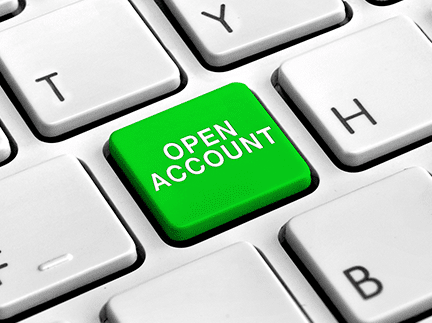Everything You Need to Know Prior To Opening a Checking Account: Crucial Insights
Opening a bank account is a substantial financial decision that needs mindful factor to consider of various aspects. Prospective account owners have to additionally weigh the value of fees, ease of access, and the financial institution's customer service reputation.
Sorts Of Bank Accounts
When considering the varied landscape of economic services, what types of financial institution accounts are readily available to satisfy numerous requirements? The key classifications of checking account consist of inspecting accounts, interest-bearing accounts, money market accounts, and deposit slips (CDs)
Checking accounts are designed for daily transactions, providing easy access to funds via debit cards, checks, and digital transfers. They usually have reduced rate of interest rates however use necessary attributes like over-limit security and on the internet financial.
Cost savings accounts, on the other hand, emphasis on gathering interest in time. These accounts motivate saving by providing greater rate of interest contrasted to checking accounts, albeit with restricted transaction abilities.
Cash market accounts integrate attributes of both checking and savings accounts. They normally provide higher rate of interest and enable a minimal variety of checks or purchases monthly, making them suitable for those seeking both liquidity and passion earnings.
Deposit slips (CDs) need depositing funds for a set term, providing higher rate of interest for securing funds till maturity. Each account kind serves distinctive financial objectives, allowing people to tailor their financial experience to their specific demands.
Elements to Consider
Picking the best financial institution account entails careful consideration of several factors that straighten with individual financial goals and way of living requirements. Primarily, examine your banking routines. If you regularly make transactions, consider an account that provides endless withdrawals and deposits without limitations. Alternatively, if you maintain a greater equilibrium, a high-yield savings account may be a lot more advantageous.
In addition, evaluate the availability of the financial institution's services. Look for organizations with a durable on-line banking platform and a network of Atm machines to make certain convenience. The physical place of branches might also be vital for those who like in-person communications.
Another vital variable is the type of services offered, such as mobile banking, budgeting tools, and financial advising services. These features can significantly boost your banking experience and aid in managing your finances effectively.

Recognizing Fees and Charges
Understanding the fees and charges related to a checking account is essential for preserving your economic health. Financial institutions frequently impose various fees that can considerably affect your overall account balance. These charges might consist of monthly upkeep charges, over-limit costs, atm machine withdrawal charges, and costs for not enough funds.
Month-to-month maintenance fees are usual and can typically be stayed clear of by meeting certain standards, such as setting or keeping a minimal check out here balance up direct deposits. Overdraft charges occur when you take out more money than your account holds, leading to penalties that can collect swiftly. It's necessary to understand just how your bank computes these charges and the conditions under which they apply.
In addition, understand ATM withdrawal charges, especially if you often use makers outside your bank's network. These charges can build up, specifically if you need to accessibility cash commonly. Lastly, some financial institutions may bill costs for extra solutions, such as paper statements or cord transfers.
Prior to opening an account, thoroughly assess the fee timetable supplied by the bank to ensure you pick an account that lines up with your financial demands and practices. Being notified regarding prospective charges can aid you prevent unnecessary expenses and optimize your banking experience.
Needed Documentation
Opening up a savings account calls for certain documentation to confirm your identification and establish your financial account. The exact needs may differ by bank and account type, yet normally, you will need to offer a government-issued image ID, such as a key or motorist's license. This ID serves to verify your identification and age, as the majority of banks call for account owners to be at the very least 18 years of ages.
In enhancement to recognition, you will certainly often need proof of address, which can be shown via an utility expense, lease contract, or copyright that includes your name and present address. Some banks may likewise need your Social Safety and security number or Specific Taxpayer Recognition Number for tax coverage objectives.
If you are opening a joint account, all applicants need to supply their documents (bank account opening). Additionally, consider having preliminary down payment funds all set, as several banks need a minimal equilibrium to activate the account

Tips for Selecting a Bank
Choosing the ideal bank is a crucial step in handling your funds efficiently. When reviewing prospective financial institutions, start by considering their charges. Examine account maintenance costs, transaction charges, and atm machine withdrawal charges, as these can significantly influence your savings with time.
Next, examine the financial institution's availability (bank account opening). Identify if the financial institution has a hassle-free network of Atm machines and branches, and take into consideration the availability of online and mobile financial solutions. An user-friendly electronic system can enhance your banking experience
Additionally, explore the rate of interest prices offered on savings accounts and lendings. A bank that provides competitive rates can aid you check that maximize your profits and decrease borrowing expenses. Customer care is one more crucial variable; select a bank understood for helpful and responsive support, whether in-person, over the phone, or online.
Lastly, consider your certain needs, such as whether you call have a peek at this site for services like financial investment options or service accounts. By thoroughly looking into and comparing your alternatives, you can select a bank that aligns with your economic goals and way of living, making certain a advantageous and smooth banking experience.
Verdict
In conclusion, understanding the different types of bank accounts and their particular attributes is important for making enlightened financial choices. In addition, being aware of required paperwork will assist in a smoother account opening process.
Potential account owners must likewise evaluate the value of charges, ease of access, and the bank's customer service reputation.Picking the appropriate financial institution account includes cautious consideration of several elements that align with individual monetary objectives and lifestyle needs. Taking these aspects into account will aid you select the financial institution account that finest fits your needs.
Understanding the charges and fees associated with a bank account is important for maintaining your monetary health and wellness. Banks often enforce various fees that can significantly impact your general account equilibrium.